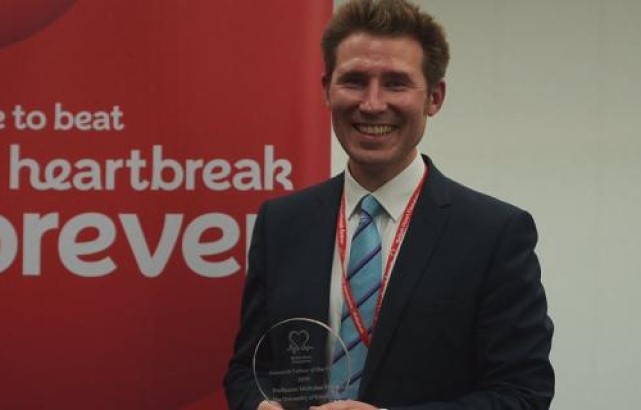

Today, the BHF Data Science Centre hosted its first Research Showcase, highlighting the work and achievements of the centre since it launched on 1 January 2020.

The day began with a keynote speech from Dr Doug Gurr, our Chair of the Board of Trustees. Dr Gurr spoke about data will be critical to transform healthcare, allowing us to move away from reacting to heart and circulatory conditions after they have been diagnosed to being able to predict them before they develop. He also highlighted how research has led to an extraordinary fall in deaths from heart and circulatory conditions over recent decades and stressed that data will be critical to provide the next waves of innovation that will transform future care.
Dr Gurr said: “Research has driven an extraordinary decrease in deaths from cardiovascular disease. Data is what will provide us with the next waves of innovation to transform cardiovascular care in the coming decades.”
Many of the speakers were researchers we are funding, including Professor Deborah Lawlor, BHF Professor of Cardiovascular Science and Clinical Epidemiology at the University of Bristol. Professor Lawlor is one of the leading researchers behind the Born in Bradford cohort. She delivered her keynote speech on how Born in Bradford is using data to build a ‘city of research’ and helping us to understand more about what keeps families healthy and happy.
Data in the midst of pandemic
Covid-19 was a recurring topic throughout the event. The BHF Data Science Centre has spent much of its short existence in the midst of a global pandemic and during that time has helped to answer some of the most pressing questions about Covid-19. We heard about how data has helped us to understand more about rare side effects of the vaccines and how it is revealing more about the links between Covid-19 and heart and circulatory conditions.
The final keynote speaker was Professor Nick Mills, BHF Professor of Cardiology at the University of Edinburgh, who spoke about how routinely collected healthcare data can be used to inform acute cardiac care. Nick stressed that using healthcare data in this way isn’t new. He gave an example of how former BHF Professor Desmond Julian established the world’s first coronary care unit in Edinburgh in the 1960s and demonstrated that this increased the number of people who survived heart attacks.

Professor Mills' recent work has focused on the use of tests for cardiac troponin, a protein that is released into the blood when the heart is damaged. By using routinely collected healthcare data, Nick and his team can better understand both the immediate and long-term outcomes of patients who receive the new tests they are trialling to identify heart attacks.
help us power life saving discoveries


